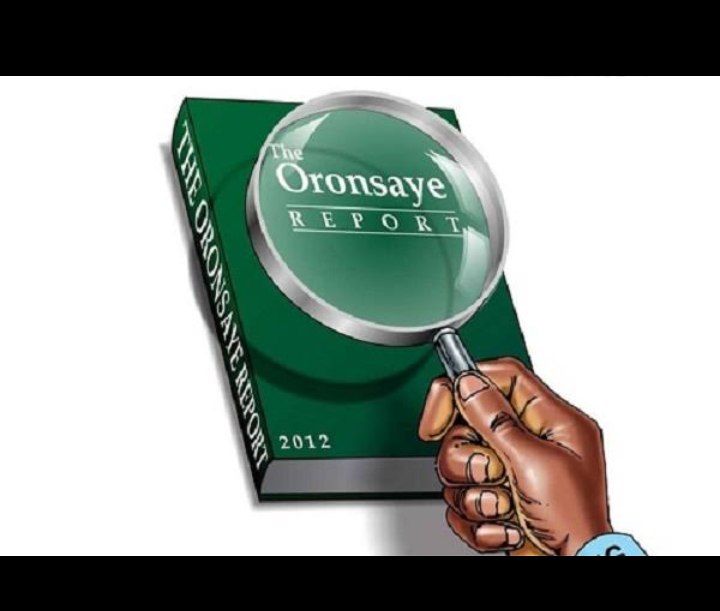The problem of downsizing the civil service to reduce cost of governance is now a big threat to the present Nigerian government. Although previous administrations had had similar challenge, the succeeding ones might have to deal with the same. This problem has, due to years of negligence, accumulated into a bigger fold and the monsters responsible for it have grown to a bigger one thus making it difficult to curtail.
As Toyin Falola succinctly put it, “history is very necessary to illuminate Nigeria’s search out of the blues”. To that degree, in order have a clear picture of the barmy civil service system Nigeria operates, it is expedient to know the history that birthed it. At the height of colonialism, Nigeria like other colonial nations was turned into a civil service state. The reason for this is not far-fetched; the colonial masters did not want their subjects in the production of goods due to the excess of production witnessed as the result of industrial revolution in Europe. More than half of colonial subjects in their home nation were therefore tamed to work for colonial masters in order to ensure steady flow of raw material to feed the teeming industries in Europe and America and to work in all facets that will ensure the raw materials get to its respective destination successfully. This exploitative system was part of the mercantile policy the Europeans adopted to rob their subject nations.
At the point of independence, Nigeria like all other Africa nations predicated their civil service system on the framework laid by colonialists. This therefore made Nigerian government to see herself as the chief employer of labour with little concern to improve the private sectors. The situation was further complicated after the termination of the first republic in 1966 and the subsequent ascension of the military to power. The ‘men in khaki’, as politically described, came to power through struggle and as such they stretch the capacity of civil service to create post in order to fill their cronies and accomplices that supported them to gain power. This leads to unnecessary duplication of ministries and employment which drained the national purse. It was on this edifice built by colonial masters and the military that the fourth republic government constructed the current civil service since 1999. The problems in the abysmal civil service was not that obvious and financing it was not problematic until when international oil price dwindled which therefore made funding the humongous system chaotic. This pose a great threat to the ability of federal government to manage the civil service system, hence in 2011, under the administration of President Goodluck Jonathan, a committee headed by Stephen Orosaye was set up to find a long-lasting solution to the civil service system that has become a bone in the neck of the then government. The panel provided recommendations and its vital parts are to: downsize the civil service, end unnecessary duplication of ministries, and devolution of power. The utility that the report serve to give the nation is great if the recommendations are implemented. It will forestall the federal government from wasting fund to service the over-bloated civil service thereby having enough wealth that can be channelled to other pressing sectors germane to the nation’s development. Also, it will pave way for the federal government to focus more on private sectors thereby enabling the sectors to take charge as the largest stakeholder in providing employment as it should be economic-wise.
As fascinating as the findings of the report is, it is however shocking that no step was taken towards the implementation of the report. There are a plethora reasons for this. Federal government on their part shows a lackadaisical attitude to the report because some of its findings warrant devolution of power to state which brings the dreaded issue of federal government to the fore – true federalism. The issue of shedding power to constituent regions is a nightmare matter for the federal government, so, substantially, the report was stalled due to “true federalism” admonition embedded in it. On the side of the masses the resistance that will manifest due to the implementation of the report will be gigantic because of huge scale of workers that will be laid off upon implementing the recommendations in the report. Currently, there is inflation as cost of essential goods is at a high rise, laying off workers will therefore be a great shock to the masses and will make government unfriendly to them again, hence the social contract binding the government and the masses will become threatened. Federal government is aware of this and they are not ready to lock horns with the masses. Lastly, the most significant reason which resulted to the failure of implementing the report is the magnitude of reaction that the labour union will mount on government if such is tried. The aggressive reaction of labour union, as witnessed recently when Kaduna government headed by Governor Nasir El-Rufai tried to reduce the number of workers in the state due to the “dwindling financial resources and huge wage bill”, will be a child’s play to what will befall federal government if it should try to implement the report because, though unacknowledged, most of their ranks profit from the dysfunctional civil service.
More than 60 percent of the national annual budget is used for servicing recurrent expenditure mainly for the payment of civil servants while federal government poses herself as the largest employer of labour which is quite insane even in modern socialist states like China and Russia. This system of over-bloated civil service has been unsustainable economically in view of the dwindling price of crude oil. It is therefore expedient for federal government to breach every hindrance to clean the Augean stables in the civil service to rescue this nation economically. To do this, the implementation of Orosaye’s report in its wholeness becomes the only panacea.
*ÈdùmàrèKóredé writes from the heart of Niger State, Suleja.*









